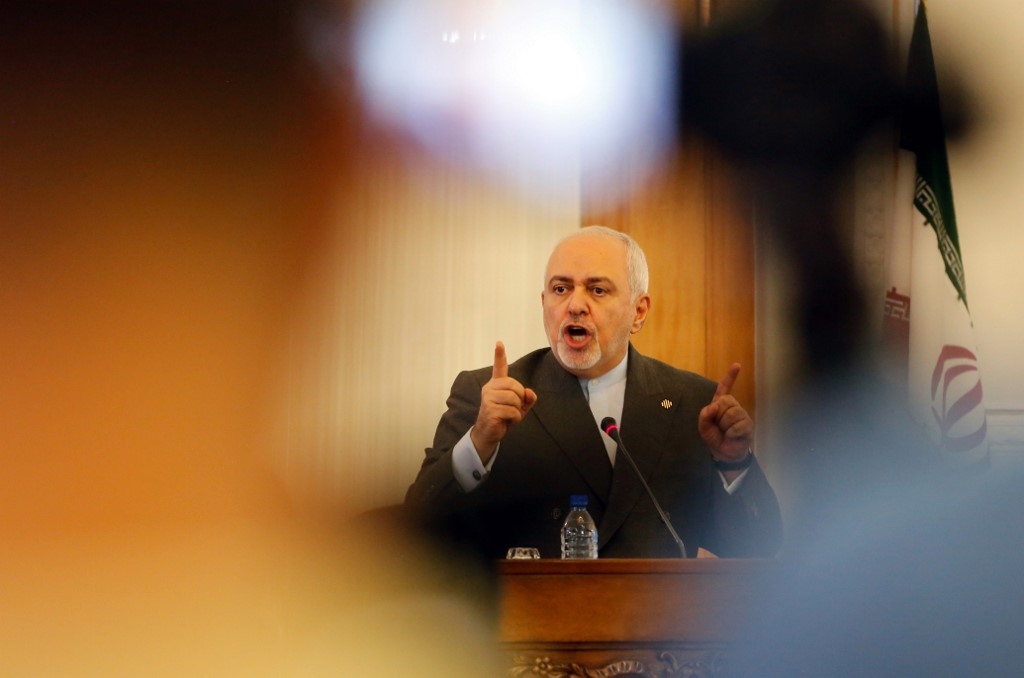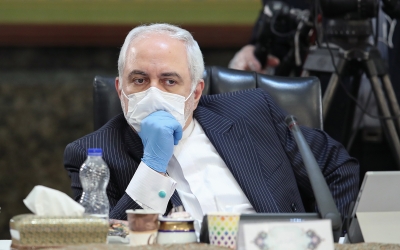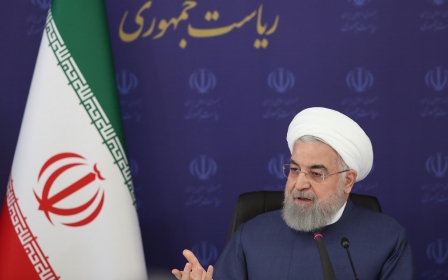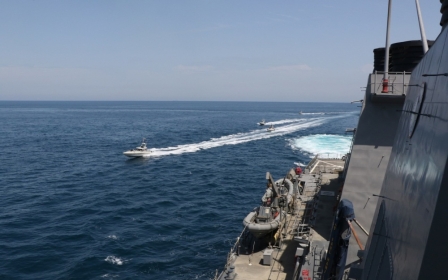'Stop dreaming': Zarif calls out US for claiming membership in Iran nuclear deal

Iran's foreign minister has told US Secretary of State Mike Pompeo to "stop dreaming" after reports surfaced the White House was preparing a legal argument that it was still an active participant of the 2015 Iran nuclear deal.
The New York Times reported on Sunday that Pompeo was preparing the argument as part of an intricate strategy to restore UN sanctions on Iran.
Since the US unilaterally withdrew from the accord in May 2018, formally known as the Joint Comprehensive Plan of Action (JCPOA), Iran has steadily been reducing its compliance with restrictions on its production of enriched uranium and has substantially boosted its stockpiles. Doing so prompted Britain, France, and Germany to formally accuse it in mid-January of violating the terms and activating a dispute mechanism in the deal.
According to the Times, the US is planning to legally claim to be a "participant state" in the JCPOA, but only for the purpose of invoking its rights as a member of the deal under a related UN Security Council (UNSC) resolution.
The resolution lays out the UN's five-year arms embargo on Iran, but it also stipulates that at any time, a signatory of the JCPOA could declare Iran non-compliant, which would then trigger - or "snap back" - the arms embargo, along with other UN sanctions.
Iran's Foreign Minister Mohammad Javad Zarif told the secretary of state on Twitter on Monday to "stop dreaming", in response to the reports.
"2 yrs ago, @SecPompeo and his boss declared 'CEASING US participation' in JCPOA, dreaming that their 'max pressure' would bring Iran to its knees", Zarif said in the tweet, where he also posted news clippings announcing the US's withdrawal from the agreement.
"Given that policy's abject failure, he [Pompeo] now wants to be JCPOA participant," Zarif added.
'The risk of a nuclear crisis'
In a legal opinion issued last year, the State Department argued that since the United States was listed as a "participant state" in the 2015 UN resolution, it still technically has the authority to snap back sanctions, despite having pulled out of the deal.
The legal framework is unclear, but the decision to accept or deny the US's argument will ultimately be up to UN Security Council (UNSC) members to decide.
According to the NYT, US officials have been circulating the new resolution in the Security Council to prevent countries from exporting conventional arms to Iran after the current ban expires in October.
The resolution has already been given to the Europeans, the Saudis and the United Arab Emirates, but not all countries have welcomed the proposed embargo, with Russia already expressing its intention to resume conventional arms sales to Iran.
As one of the five permanent members of the Security Council, Russia would have the ability to veto any new resolution brought forth by the US.
Asked about it, Pompeo said in a statement to the Times: "We cannot allow the Islamic Republic of Iran to purchase conventional weapons in six months. President Obama should never have agreed to end the UN arms embargo."
"We are prepared to exercise all of our diplomatic options to ensure the arms embargo stays in place at the UN Security Council," he added.
Europe has invested massive political capital in the deal, with some European powers trying to save the accord, parts of which do not expire until 2041.
"If Pompeo goes through with this plan, snapping back sanctions on Iran collapses the JCPOA," Kelsey Davenport, director for nonproliferation policy at the DC-based Arms Control Association, told the AFP news agency.
Even more significant, the move could lead Iran to make good on threats to exit the nuclear Non-Proliferation Treaty entirely, she said.
"This is just another step that would undermine US credibility, make future negotiations with Iran more difficult and increase the risk of a nuclear crisis in the region," she said.
Middle East Eye propose une couverture et une analyse indépendantes et incomparables du Moyen-Orient, de l’Afrique du Nord et d’autres régions du monde. Pour en savoir plus sur la reprise de ce contenu et les frais qui s’appliquent, veuillez remplir ce formulaire [en anglais]. Pour en savoir plus sur MEE, cliquez ici [en anglais].





